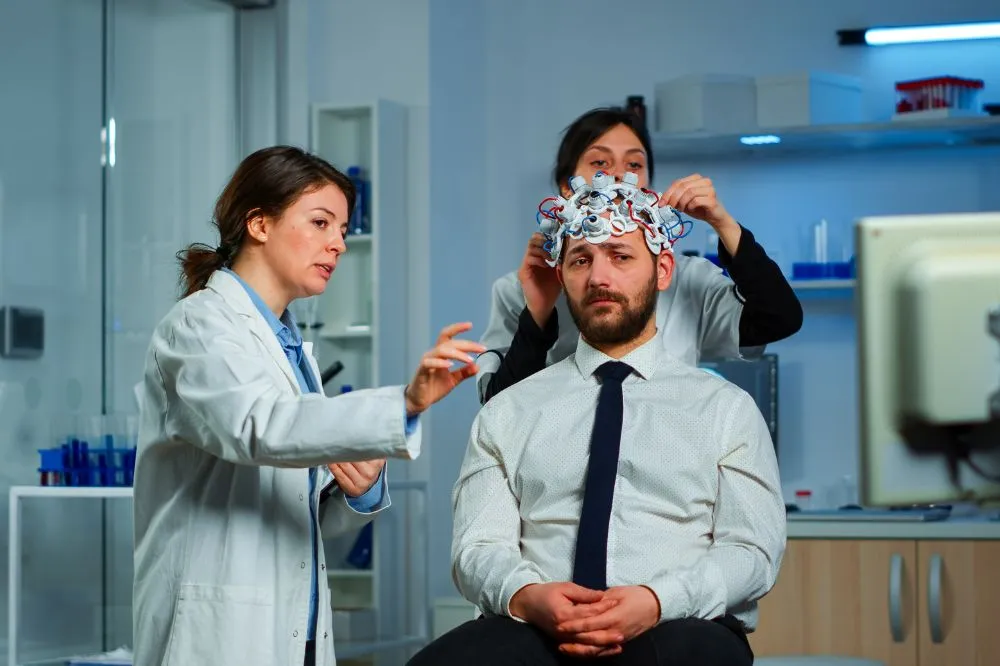Summary: Exercise can help boost brain health in multiple ways. It may help by improving metabolic health and thus indirectly slowing down neurodegeneration. However, a new study now suggests that exercise can directly impact the brain as it can significantly boost neurotransmitters and growth factors. Thus, the study found that 30 days of workout can boost dopamine levels by 40% and BDNF levels by 60%. It means that training has immediate, mid-term, and long-term benefits for brain health. It can help prevent and manage neurodegenerative disorders more effectively than thought earlier.
A new study suggests that exercise could be the most effective way to prevent neurodegeneration. They found that exercise may boost many bioactive compounds in the brain and even boost neurotransmitters’ levels.
Experts have long believed that the rise of neurodegenerative diseases in the last few decades has a lot to do with lifestyle. After all, genetics cannot change in a few decades. Infectious diseases have also become less common. It appears that nutrition status has also improved over the decades.
So, what could be the cause of an increase in neurodegenerative diseases? It could be a rising concentration of environmental toxins, and some lifestyle issues like obesity, high-calorie intake, unbalanced diet, and lack of physical activity
The more researchers study the role of exercises in wellness, the more they are surprised. It appears that a high level of physical activity may be the best way to boost physical and mental health. The benefits of regular physical activity are innumerable.
Exercise may help in neurodegeneration in multiple ways
Experts have long known how exercise may help prevent neurodegeneration disease symptoms by boosting metabolism, improving energy metabolism, preventing mitochondrial dysfunction, lowering insulin resistance, and more.
However, new studies confirm that regular exercise can boost the level of specific bioactive compounds that help prevent neurodegeneration. Thus, the study found that just about 30 days of exercise, that is, voluntary wheel running by mice, could boost the levels of dopamine and BDNF (brain-derived neurotrophic factor).
Researchers were amazed to see that regular exercise could boost dopamine levels by as much as 40%. Which is more than many drugs can do. It means exercise may have greater benefit for mental health than certain pharmacological drugs in conditions like Parkinson’s. In fact, regular exercising along with expert guidance through telehealth can also help in addiction recovery eliminating the chances of relapse.
Earlier studies have proven that exercise can benefit significantly in Parkinson’s. However, those studies could not demonstrate how exercise helps and to what degree. It now appears that exercise has a more favorable impact on brain health than imagined earlier.
Moreover, this study found that the impact on exercise is felt several days after discontinuing it.
The same study found that 30 days of the exercise was enough to boost BDNF levels by 60%, which is significant. There are no known pharmacological drugs that can boost the level of this growth factor so much.
Researchers think that increased dopamine levels in the brain have short and mid-term benefits in Parkinson’s, while an increase in BDNF has long-term benefits. An increase in BDNF may help prevent further neurodegeneration and even boost regenerative processes.
Although this particular study focused on the benefits of Parkinson’s, researchers think that regular exercise may help in many neuropsychiatric disorders. For example, regular workout could be a perfect way to overcome anxiety and depression.
Since exercise can not only boost the levels of various neurotransmitters but can also enhance the concentration of growth factors, it is pretty likely that regular workout may significantly reduce the risk of other neurodegenerative disorders like age-related cognitive decline and dementia.






